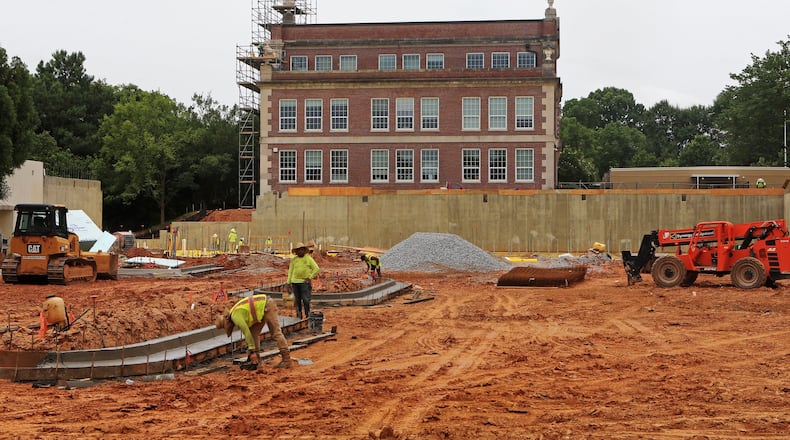The Fulton and Atlanta school districts are preparing to ask voters to renew a one-cent sales tax to pay for building upgrades, technology and other expenses.
The Atlanta school board recently agreed to place a five-year extension of the Educational Special Purpose Local Option Sales Tax on the Nov. 2 ballot. The Fulton school board is scheduled to vote Thursday to do the same.
Fulton County Schools could receive more than $1.2 billion if Fulton voters approve the tax. Atlanta Public Schools, which straddles Fulton and DeKalb counties, would collect an estimated $650 million if residents in both counties support the measure.
Sales-tax revenue is a key way Georgia districts pay for new schools and building upgrades. It’s also how they keep up with technology, transportation and security needs.
The Fulton school system is further along in its planning work than APS, where the board is not expected to sign off on a detailed list of projects until October.
The Fulton board recently approved a five-year capital plan that outlines how the district would spend $1.2 billion. A quarter of the capital budget would be go to technology, including devices for students and teachers, computer labs, data management and other projects.
Fulton board members said the plan represents a shift from building new schools to investing even more in technology, which they said is in line with enrollment and educational trends.
“It’s obvious to us we’re going from bricks to clicks,” said Gail Dean, at a recent meeting.
During the pandemic, online learning required more robust technology systems. And after years of enrollment gains, Fulton’s student numbers have begun to taper off.
“This capital plan feels different; it looks different. We are no longer in a high-growth phase,” said board member Linda McCain. “Five years ago, we were still growing as a district. And now we are, if not dropping, definitely level.”
Still, over half of the projected $1.2 billion in tax revenue would fund facility improvements, including major and minor renovations at three dozen schools and upgrades for elementary school media centers and high school athletic and theater spaces.
Five schools with “major deficiencies” will be replaced or reconfigured.
After years of lobbying by residents, the district will rebuild North Springs High School, constructed in 1963.
Major changes are also coming for S.L. Lewis Elementary School, Holcomb Bridge Middle School, Haynes Bridge Middle School and Camp Creek Middle School. A spokesman said the district has several options for those schools that range from building new schools on current or different sites, renovating them, or consolidating schools.
The plan calls for converting elementary schools into expanded schools that serve students in kindergarten through eighth grade, though the document does not identify which schools.
APS does not yet have a breakdown of how the district would spend future sales-tax revenue. District officials plan to hold meetings over the summer to gather public input.
Administrators will draft the plan in August, followed by more board and community meetings. The board is scheduled to finalize the list of projects a month before Election Day.
“We remain committed to improved engagement in APS and look forward to hearing from our community along this journey,” said Superintendent Lisa Herring, during a board meeting.
Voters last approved the sales tax in 2016. If the tax is not extended, it will expire next year.
About the Author
Keep Reading
The Latest
Featured



